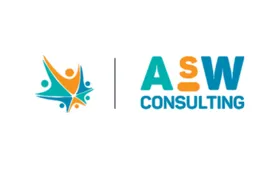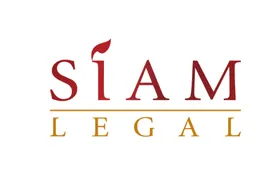BOI Issues New Rules on Expatriate Employment and Remuneration
BOI Issues New Rules on Expatriate Employment and Remuneration
In June 2025, the Thailand Board of Investment (“BOI”) released Notification No. Por. 8/2568 (the “Notification”), setting out new requirements on how BOI-promoted companies may appoint and retain foreign personnel. The changes mark a shift in regulatory policy, particularly for enterprises in the manufacturing industry.
This briefing highlights the central features of the Notification, the underlying policy direction, and practical considerations for affected businesses.
1. Foreign Workforce Composition in Manufacturing
A new ratio now governs the employment of foreigners in BOI-promoted manufacturing companies. Importantly, the ratio only comes into play if the company’s total workforce exceeds 100 employees.
- Enterprises with fewer than 100 employees: No ratio applies.
- Enterprises with more than 100 employees: At least 70% of the workforce must be Thai nationals. The share of foreign nationals is capped at 30%.
The BOI has framed this measure as a mechanism to safeguard opportunities for Thai workers and strengthen local human capital development.
There is, however, flexibility built in. Under Article 4.2.4, the BOI retains discretion to waive or relax the ratio for businesses that are considered strategically important or where strict compliance is not feasible. The boundaries of this discretion are not spelled out and will likely evolve on a case-by-case basis.
2. Salary Benchmarks for Expatriate Roles
Another key element of the Notification is the expansion of minimum salary thresholds for expatriates. While earlier BOI guidelines had addressed only certain categories, the new framework applies across nearly all levels of foreign hires.
The Notification prescribes monthly minimum salaries for expatriates by position level, with some reduced rates available where the individual holds a relevant bachelor’s degree. The updated salary bands are as follows:
| Position Level | Examples of Positions | Average Monthly Salary Payment (Thai Baht) | Reduced rate (applies in the event that the applicant holds a bachelor’s degree in the relevant field of work) |
|---|---|---|---|
Executive level
| Chairman, President, Chief Executive Officer (CEO), Chief Finance Officer (CFO), Chief Operating Officer (COO), Chief Technology Officer (CTO), Vice Chairman, Vice President, Executive Director, Managing Director, General Manager | 150,000 | - |
Management Level
| Production Manager, Marketing Advisor, Assistant Vice President | 75,000 | 50,000 |
| Operations level | Production Supervisor, Project Coordinator, Data Analyst, Marketing Consultant, Sales Executive | 50,000 | - |
| Scientific or Technological Researcher | Research & Development roles | 75,000 | 50,000 |
| Engineering position | Mechanical, Electrical, Civil, and related Engineers | 75,000 | 50,000 |
| IT Specialist | Software Developer, Systems Analyst, Network Engineer, Cybersecurity Specialist | 75,000 | 50,000 |
| Workstation Operator | Machine Operator, Technical Operator | 35,000 | - |
For new expatriate appointments, employment agreements setting out remuneration must be submitted for BOI verification. For extensions of existing positions, companies must show proof of actual income, either through the annual withholding tax return (P.N.D. 1 Kor) or the monthly withholding tax return (P.N.D. 1).
Local Remuneration Requirement
In the past, certain BOI-sponsored expatriates were permitted to receive salaries paid by overseas entities. The new regime eliminates this practice. Going forward, all expatriate salaries must be paid through a Thai corporate entity, regardless of industry. This change aligns expatriate employment more closely with Thailand’s tax and labour framework.
Implementation Timeline
The Notification sets out a phased implementation schedule:
- Companies with BOI certificates issued after 5 June 2025 – provisions take effect from 1 October 2025.
- All BOI-promoted companies – provisions become fully effective from 1 January 2026, regardless of certificate issuance date.
Key Takeaways
The Notification underscores the BOI’s dual priorities: promoting local employment while ensuring fair, transparent remuneration for expatriates. Companies enjoying BOI privileges should:
- Review workforce composition to ensure compliance with the 70:30 ratio (where applicable).
- Update employment contracts and tax documentation to align with new verification requirements.
- Transition all expatriate remuneration to local disbursement through Thai entities.
With the new rules coming into force in late 2025 and early 2026, BOI-promoted companies are advised to undertake an immediate review of internal employment and remuneration structures. Early preparation will help mitigate compliance risks and avoid disruptions when the Notification takes full effect.



